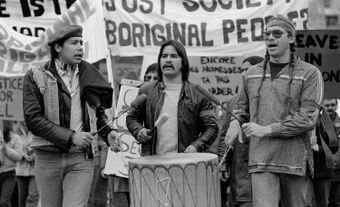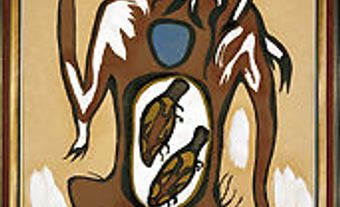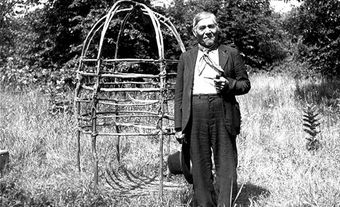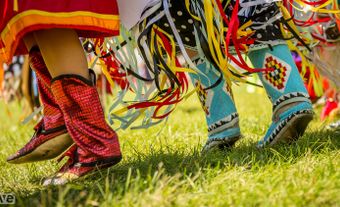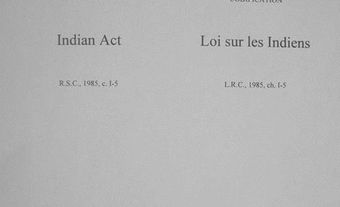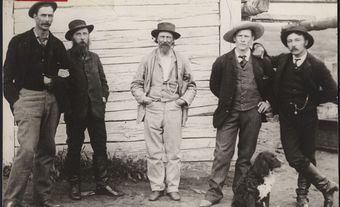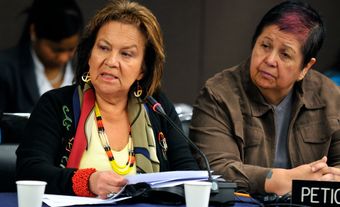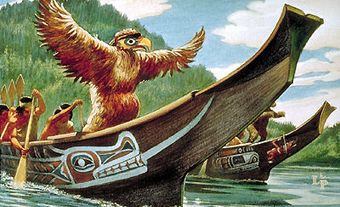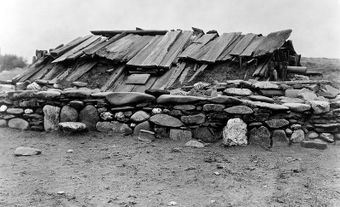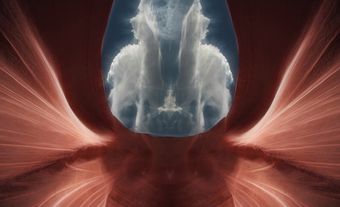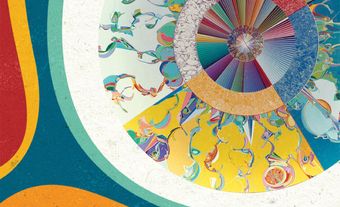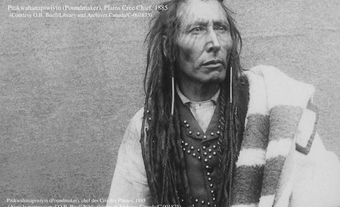The Sun Dance (also Sundance) is an annual sacred ceremony performed by several First Nations in the Prairies. (See also Plains Indigenous Peoples in Canada.) The Sun Dance reaffirms spiritual beliefs about the universe. The Sun Dance was forbidden under the Indian Act of 1895, but this ban was generally ignored and dropped from the Act in 1951. Some communities continue to celebrate the ceremony today. (See also Religion and Spirituality of Indigenous Peoples in Canada.)
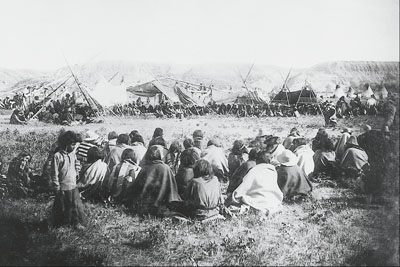
History
Historically, the Sun Dance took place at midsummer when bands congregated at a predetermined location. The ceremony was arranged by a spiritual leader (sometimes a medicine man or shaman), either as a request for supernatural aid or in response to a vision. Following several days of preliminary ritual, the Sun Dance focused on constructing the sacred dance pole and sacred lodge. On the final day, different versions of the same dance took place. Dancers offered prayers for their family, for the Earth and for their communities. Those who participated in Sun Gaze Dances performed personal sacrifice through piercings and flesh offerings. The Sun Dance was an emotional experience and an opportunity to renew kinship ties, arrange marriages and exchange property.
Banning the Sun Dance
The Indian Act of 1895 banned a number of traditional Indigenous ceremonies, dances and festivals, including the Sun Dance. While some communities continued to perform the ceremony in secrecy, others upheld the prohibition in fear of government persecution. The pass system and other policies of assimilation helped to enforce the Indian Act and prevent Indigenous peoples from gathering in large groups. In 1951, amendments to the Indian Act no longer prohibited celebration of the Sun Dance.
Did You Know?
In the late 1950s, filmmaker Colin Low was permitted to film the Kainai (Blood) Nation in Alberta as they celebrated the Sun Dance. This was the first time that the Sun Dance was captured on film. In 1960, the National Film Board of Canada released Low’s film, Circle of the Sun, which explored the band’s connection to their culture and to the environment. It also showed the difficulties of the younger generation in connecting to their heritage and finding their place in the world.
The Sun Dance Today
Some Indigenous societies continue to perform the Sun Dance. In 2007, World Council of Elders, a non-profit organization, established the International Sundance, which gathers Indigenous communities (primarily from across Canada, the United States and Australia) to perform the sacred ceremony. (See also Indigenous Elders in Canada.)

 Share on Facebook
Share on Facebook Share on X
Share on X Share by Email
Share by Email Share on Google Classroom
Share on Google Classroom
